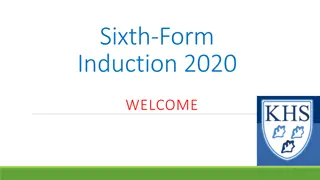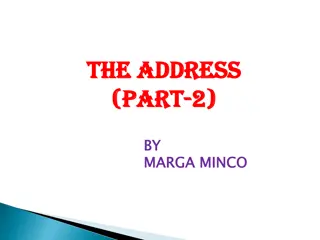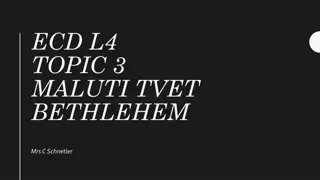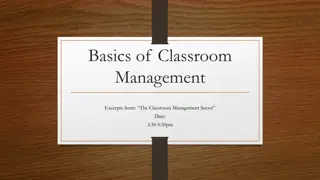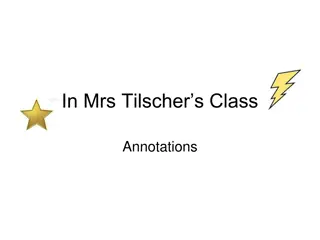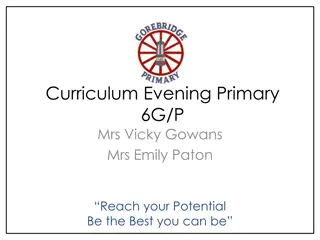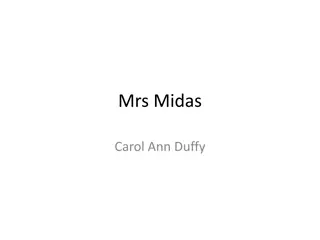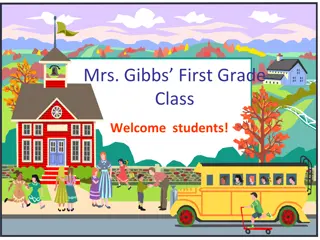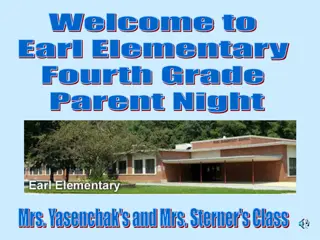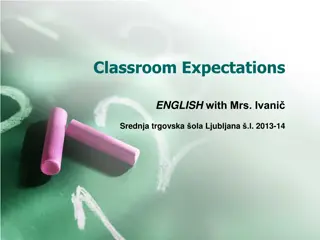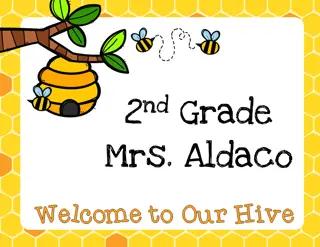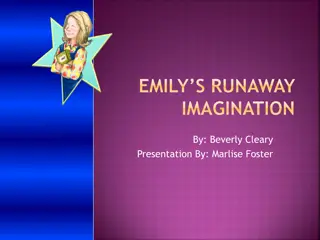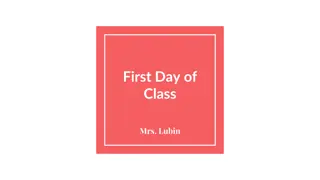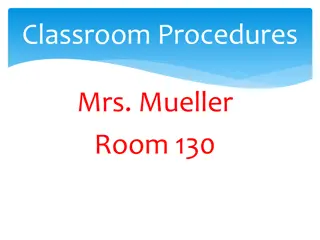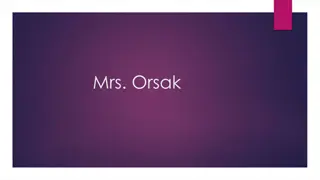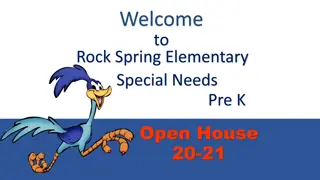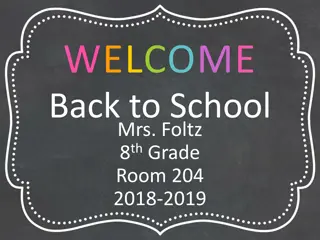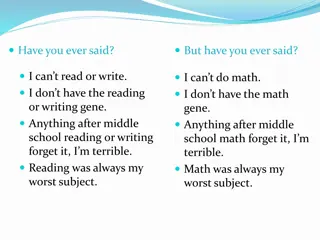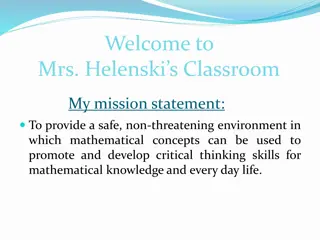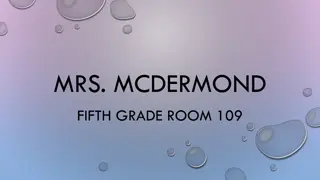Mrs. Emily Cartolano-Gomez - Classroom Overview and Procedures
Mrs. Emily Cartolano-Gomez provides a detailed outline of her third-grade classroom schedule, routines, and expectations, including morning routines, academic subjects, homework guidelines, and assessment information. Additionally, she shares insights into her Language Arts teaching philosophy, reading and writing components, and the upcoming PARCC assessments.
Download Presentation

Please find below an Image/Link to download the presentation.
The content on the website is provided AS IS for your information and personal use only. It may not be sold, licensed, or shared on other websites without obtaining consent from the author.If you encounter any issues during the download, it is possible that the publisher has removed the file from their server.
You are allowed to download the files provided on this website for personal or commercial use, subject to the condition that they are used lawfully. All files are the property of their respective owners.
The content on the website is provided AS IS for your information and personal use only. It may not be sold, licensed, or shared on other websites without obtaining consent from the author.
E N D
Presentation Transcript
Mrs. Emily Cartolano-Gomez ecartolano-gomez@warrentboe.org 908.753.5300 ext. 5234 Note in planner Teacher Webpage
Third grade life Morning Routine Word study/Handwriting Reading/Snack Writing Recess/Lunch Math Specials Snack/Social Studies/Science Pack up
Classroom Procedures Friday Folders Tests/quizzes Parent/teacher communication Birthday celebrations (new) Homeroom parents- Mrs. Flanigan, Mrs. Nogan, and Mrs. Parker
Usually 4 nights a week Read for at least 20 minutes Sign planner every night after homework is completed About 30 minutes Check to make sure it is completed Assigned to reinforce and practice skills introduced in class Important to set up a routine for your child (quiet place to complete it, a place to put it when done, planner out while completing it, etc.)
Do my tasks Have materials Be where I belong Control myself Follow directions Speak considerately Classroom promises
PARCC Partnership for Assessment of Readiness for College and Careers English Language Arts (ELA) and Math Online Assesses the Common Core State Standards Specific testing dates will be communicated along with more information from the state
Language Arts Philosophy Balanced literacy Active literacy Gradual Release of Responsibility Teacher modeling Guided practice Collaborative practice Independent practice GOAL-application
Language Arts Reading Components Reading Workshop Read aloud books Guided Reading (non-fiction) Independent Reading Tracking thinking Notebooks and Chromebooks Book Clubs Reader s Theater
Language Arts Writing Components Writing Workshop/Units of Study Narrative, Information, Opinion Modeled writing, shared writing, guided writing Drafting, Conferencing, Revising, Editing, Publishing Word Study/Spelling City Vocabulary Daily Language Review
Math Concepts Operations and Algebraic Thinking- represent and solve problems involving multiplication and division Understand properties of multiplication and the relationship between multiplication and division Multiply and divide within 100 By the end of Grade 3, know from memory all products of two one-digit numbers
Math Concepts Number and Operations-Fractions Develop understanding of fractions as numbers: a. part of a whole or a group b. on the number line c. equivalence and ordering Measurement and Data Time, liquid volumes, and masses of objects Area and perimeter Represent and interpret data: a. draw and interpret picture and bar graphs b. generate measurement data by measuring lengths using rulers marked with halves and fourths of an inch
Geometry 2-dimensional shapes and their attributes Number and Operations in Base Ten Use place value understanding and properties of operations to perform multi-digit arithmetic: a. round numbers to the nearest 10 or 100 b. fluently add and subtract within 1, 000 Exploration of concepts before learning the steps to solve problems Hands-on , differentiated activities Numerous strategies Higher-level thinking Solve multistep problems Explain thinking Real-life applications Deeper level of understanding Online opportunities for learning Compacting
Social Studies Topics o Communities o Native American communities o Jamestown o Pioneers-Daniel Boone, Lewis and Clark o Immigrants o Economics o Local, state and national government
Science 3 Units Inquiry based approach Plant Growth and Development Rocks and Minerals Chemical Tests
Digital Resources ClassLink Google Drive/Classroom Chromebook Think Central (Go Math) RAZ kids/Kids A-Z Vocabulary and Spelling City Brain Pop Edu Typing, Jr. Student Resources math book (workbook)
Thank you for visiting and all of your support! Sign up for a November conference Class party sign up sheet Email list Children s work Quiz on desk Write a note to your child



